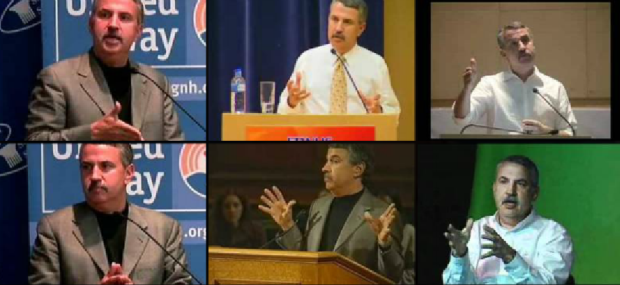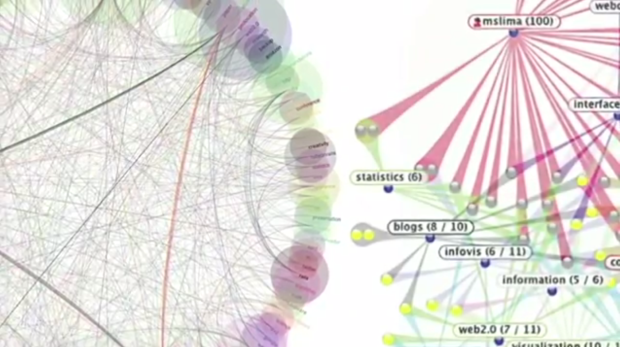


Globalize Yourself
http://www.youtube.com/watch?v=lp4znWHvsjU This era of globalization is not characterized by countries globalizing, it is not spearheaded by companies globalizing. Now what is really new, really unique, really exciting and really terrifying, is that this era of globalization is built around individuals. What is new, unique, terrifying and exciting about this era of globalization is the degree to which it empowers and enjoins, the degree to which it enables and requires individuals to globalize themselves and to think of themselves as potential connectors, collaborators and competitors with other individuals anywhere in the world.” –Thomas Friedman, in the above video, The 3 Eras of...
Interconnected Networks – The Modern Day Norm For Understanding The Organization Of Information And Social Interactions
Manuel Lima, senior UX design lead at Microsoft Bing, shows how interconnected networks are increasingly becoming the modern day norm for understanding the organization of information and social interactions, and as a result, visualized networks are increasing in popularity as cultural memes. In An Interconnected Network, If One Element Changes, The Whole Network Changes As shown in the above video, a defining factor of an interconnected network is that if one of its elements changes, that change affects the whole network and thus the whole network changes. Accordingly, a collapse in one part of the network clearly causes all the other parts to be affected by it, as is most painfully and obviously exemplified by the global financial crisis. Thus, this interconnected network perspective of understanding the organization of social interactions clearly shows the need for mutual responsibility as a leading social value. When Will Commonly Accepted Social Values Grow To Harness The Interconnected Network Perspective In Human Relationships? As knowledge advances to harness the interconnected network outlook on every area of life, the social values that characterize “the world of the past” – individualism, maximizing profits and self-interest – and their methods of stratification and protectionism still prevail in human society. What will it take for society at large to realize how living to satisfy one’s individual interests is an outdated way of living, which leads to increasing crisis? Moreover, is it possible that the flourishing knowledge of interconnected networks could start penetrating and reformatting the way human beings relate to each other, before facing another crisis tipping...
Are We Destined To Pay The High Price Of Materialism Until We Die, Or Is There Another Way?
The Grip Of Materialism Every day Americans are bombarded with hundreds of messages suggesting that ‘the good life’ is attainable through ‘the goods life,’ by making lots of money and spending it on products that claim to make us happy, loved and esteemed. On the news shows we hear a near constant refrain from economists and politicians about the importance of consumer spending and economic growth. Around 150 billion dollars are spent most years to embed consumer messages in every conceivable space. Commercialization and consumerism also reach deeper, warming their way into people’s psyches and encouraging them to organize their lives around higher salaries and owning more stuff.” The Problem Of Materialism Research consistently shows that the more that people value materialistic aspirations and goals, the lower their happiness and life satisfaction, and the fewer pleasant emotions they experience day to day. Depression, anxiety and substance abuse also tend to be higher among the people who value the aims encouraged by consumer society.” The Stronger The Grip Of Materialism, The Lower The Care For Others And Nature Scientists have found that materialistic values and pro-social values are like a see-saw; as materialistic values go up, pro-social values tend to go down. This helps explain why people act in less empathic, generous and cooperative ways when money is on their minds. When people are under the sway of materialism, they also focus less on caring for the earth. The same type of see-saw is at work here: as materialistic values go up, concern for nature tends to go down. Studies show that when people endorse money, image and status, they’re...
